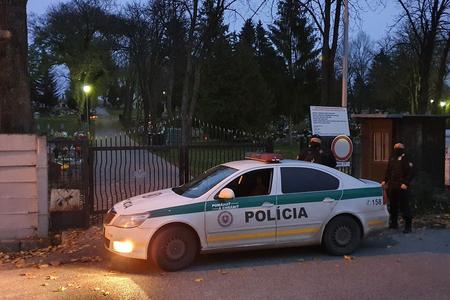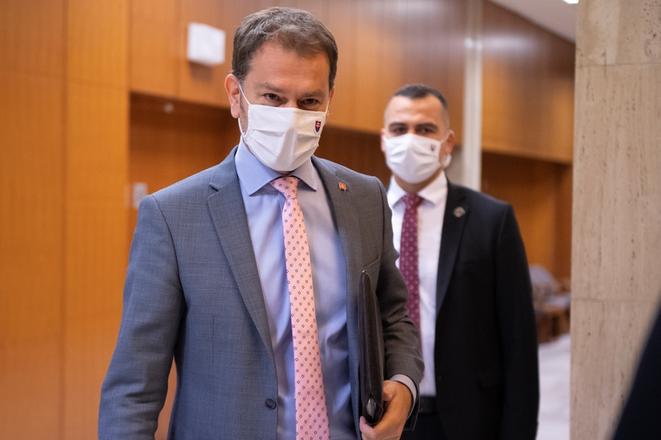Our paywall policy:
The Slovak Spectator has decided to make all the articles on the special measures, statistics and basic information about the coronavirus available to everyone. If you appreciate our work and would like to support good journalism, please buy our subscription. We believe this is an issue where accurate and fact-based information is important for people to cope.
The national emergency declared in Slovakia on October 1 will be prolonged by 45 more days.
Originally, it was supposed to end on November 14, but will now last until the end of the year.
The proposal was adopted by the cabinet at its November 11 session. Originally, the central crisis staff proposed to prolong the national emergency by 90 days, but several experts and even the junior coalition party Freedom and Solidarity (SaS) opposed the idea.The proposal was adopted by the cabinet at its November 11 session. Originally, the central crisis staff proposed to prolong the national emergency by 90 days, but several experts and even the junior coalition party Freedom and Solidarity (SaS) opposed the idea.
Meanwhile, Justice Minister Mária Kolíková (Za Ľudí) said that they are working on an amendment to the constitutional law that will enable the government to adopt more measures.
No curfew at night

On the other hand, the cabinet did not approve any changes to the curfew. The central crisis staff wanted to apply one between the hours of 23:00 and 5:00, with exceptions for those commuting to work or visiting the doctor.
The current curfew will end on November 14. The curfew does not apply between 1:00 and 5:00 while people with a negative PCR or antigen test result from the recent mass testing are also exempt.
After November 14, people will no longer be required to carry the certificates confirming their negative test results with them.
PM Igor Matovič (OĽaNO) has said that a night curfew preventing people from gathering could be adopted with a resolution issued by the chief hygienist. He failed to specify its content, though.
State of emergency also in place
Currently, the law stipulates that during a national emergency the state can limit some fundamental rights and freedoms for a necessary period of time to a necessary extent, the TASR newswire reported.
The government can declare a national emergency if there is a threat to people’s lives and health, the environment and significant property values. It cannot last longer than 90 days.
A national emergency has been declared twice during the current coronavirus pandemic, once in the spring (when it lasted from March 16 to June 14, 2020, and was applied only to health care), and then in October.
The state of emergency declared on March 12 is still in place.



 PM Igor Matovič arrives at the cabinet session. (source: TASR)
PM Igor Matovič arrives at the cabinet session. (source: TASR)